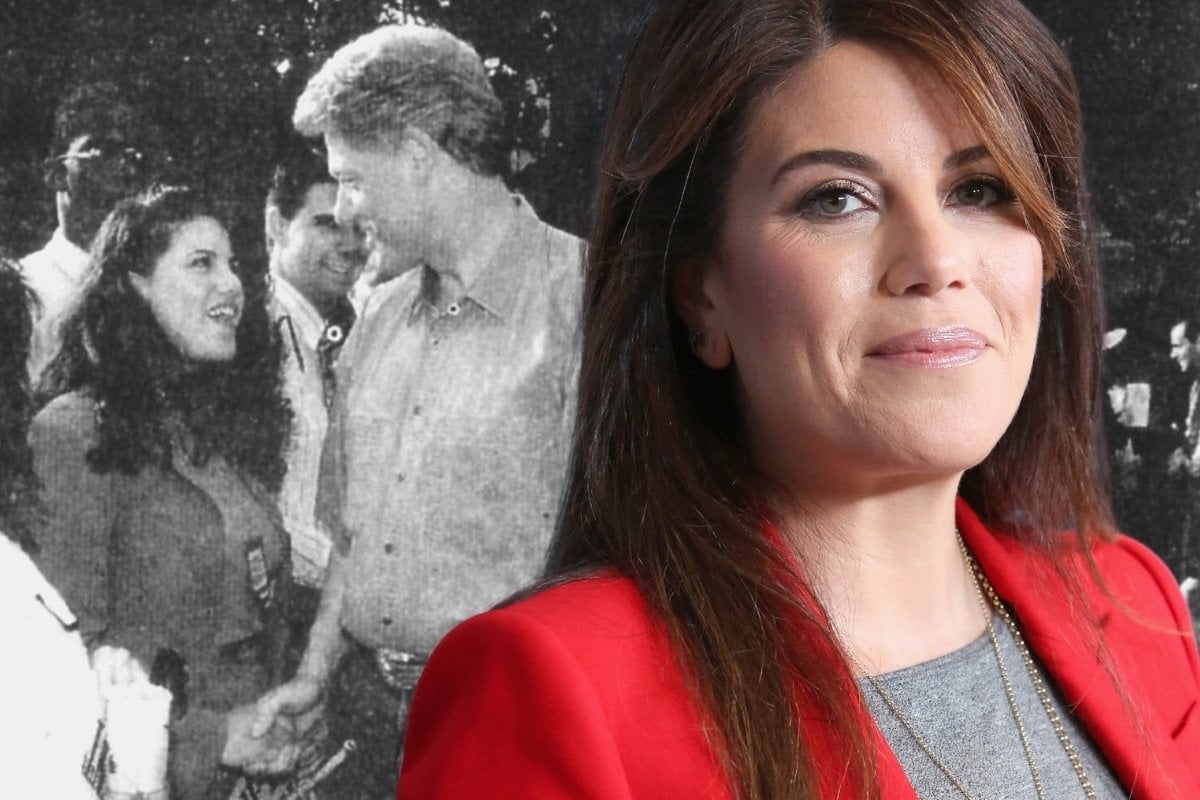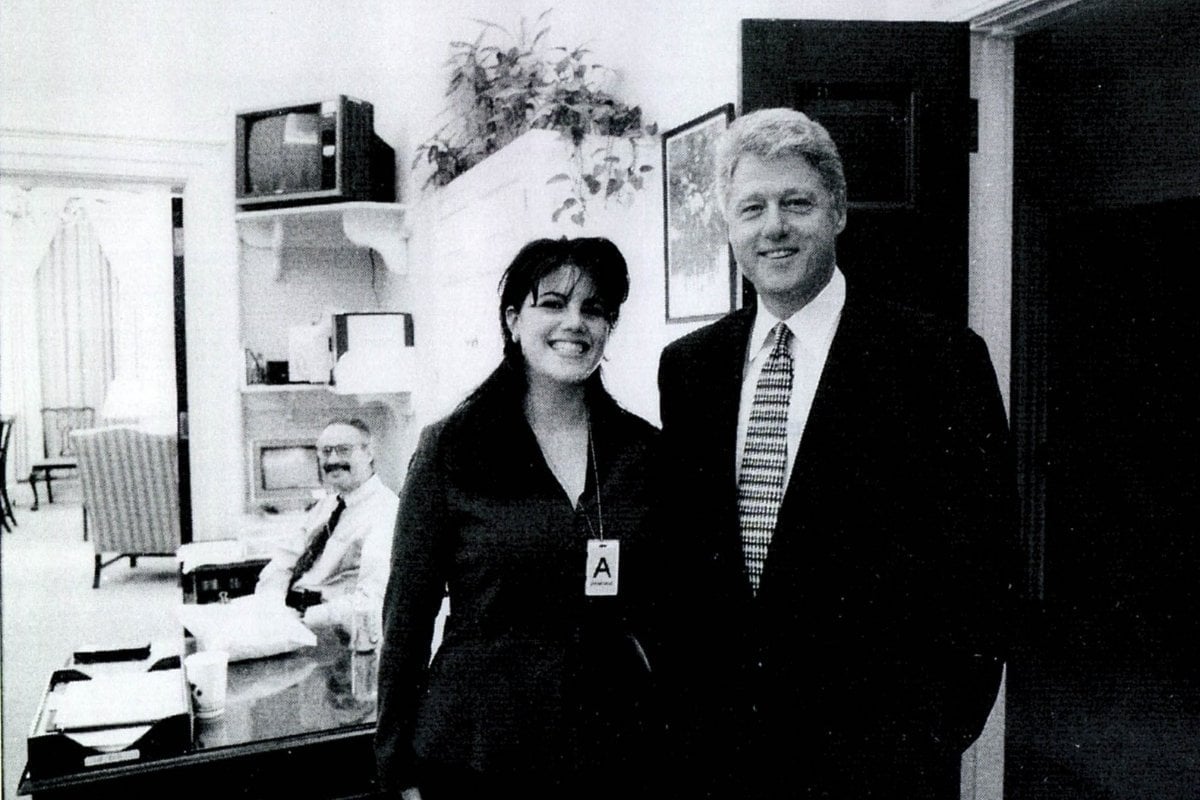
Somewhere around the advent of tabloid media, the press became not just about the dissemination of information but the commodification of shame.
Glossy magazines crowing about high-profile scandals. Paparazzi stalking celebrities with long lenses, waiting to snap them at their worst.
Then came the internet and analytics, when the very value of a person's humiliation could be indexed to advertising dollars in real-time. With comment functions, media articles became not communication but conversation, inviting the masses to participate in the media rather than just consume it.
The next step, of course, was MySpace, Facebook and Twitter, at which point the audience became the news gatherers, the influencers and conversation drivers.
It was in the brief and volatile moment between those last two phases that the world learned the name Monica Lewinsky.
"That woman."
In January 1998, news broke that an independent investigation into the conduct of the Bill Clinton administration uncovered that the President had engaged in an affair with Lewinsky in 1995/6 while she was a 22-year-old White House intern.
Linda Tripp, a friend of Lewinsky's who worked alongside her at the Pentagon's public affairs office, had tipped off investigators after Lewinsky confided in her about falling for and having a sexual relationship with her former boss.
'Interngate', as it was then dubbed, was among the first news major stories to be scooped by digital media while the ink was still drying on the pages of traditional press outlets. And there, online, it flourished.
"Overnight, I went from being a completely private figure to a publicly humiliated one, worldwide," Lewinsky said in her 2015 TedTalk. "I was patient zero of losing a personal reputation on a global scale almost instantaneously."
Monica Lewinsky was, in today's language, "cancelled".
The term is now shorthand for a mass condemnation of a person who's committed a perceived or actual offence.
Today, it plays out mostly on social media, where the threshold for a boycott or pile-on is becoming increasingly flexible; from a years-old tweet that's been dug up for criticism, to critical revelations about criminal behaviour like those seen during the #metoo movement.
But in the late '90s, trial by internet was in its infancy, and Lewinsky proved to be a solid test case.
There were countless articles and forum posts written about her — few with empathy. She was labelled a "slut", "bimbo", "home-wrecker", "portly pepper pot", and famously by the President himself "that woman". There were fixations on her performing oral sex on President Clinton, although their relationship was, in her words, "mutual". Then there's the fact that the scandal would become a single chapter in his legacy, but the entire narrative of hers.
Clinton was later impeached for lying under oath about the affair but allowed to serve out his term, and eventually left office with the highest approval rating of any US president before him. Meanwhile, Lewinsky's name became a stain on her own CV. "Because of what potential employers so tactfully referred to as my 'history,' I was never 'quite right' for the position," she wrote in Vanity Fair in 2014.
In the decades since, though, the public perception of Lewinsky has shifted.
Part of that has come courtesy of the passage of time, and the growing understanding about the steep power dynamics that were at play in her relationship with Clinton, as well as an appreciation of the deeply sexist nature of the commentary that followed.
 Monica Lewinsky and President Bill Clinton. Image: Getty/House Judiciary Committee.
Monica Lewinsky and President Bill Clinton. Image: Getty/House Judiciary Committee.
Late-night television host David Letterman, for example, has since publicly apologised for mocking Lewinsky on his show. Among the many cruel and sexist 'jokes' he made at the time was a suggestion that she ought to write a memoir titled, 'Me and My Big Mouth'.
"Myself and other people with shows like this made relentless jokes about the poor woman," the former Late Show host told Barbara Walters in 2014. "I feel bad about my role in helping push the humiliation to the point of suffocation."
But perhaps the most critical to Lewinsky's redemption is Lewinsky herself.
Yes, she has repeatedly acknowledged that her role in the relationship was "wrong and misguided", and that the affair had long-lasting personal, professional and political implications for a lot of people — Hillary Clinton, chief among them. (Not only did the future presidential candidate suffer the betrayal and second-hand embarrassment of her husband's actions, but they hampered her attempts to attack her rival Donald Trump's abhorrent record with women during the 2016 election.)
But critically, Lewinsky has drawn on the most humiliating and traumatising time of her life to become an anti-cyber bullying advocate. She now leverages online media in particular — the very medium that started it all — to encourage her 1.1 million followers to #clickwithcompassion.
She's also spoken publicly via digital press and on the TedTalk stage about the large (and many would argue outsized) price she's paid. Even joked about it on social media.
an internship at the white house will be amazing on your resume. 😳
— Monica Lewinsky (she/her) (@MonicaLewinsky) July 14, 2019
Recently served as a consultant and executive producer (notably, with no creative control) on Impeachment: American Crime Story, the Ryan Murphy series about the affair, which is currently partway through its run on TV and streaming services.
After decades of being, as she puts it "so seen, but not being seen" at all, Monica Lewinsky is reclaiming the narrative, repurposing her shame. As long as her story is going to be told, she is determined to have a say in its telling.
She's not alone. The documentary Framing Britney Spears helped highlight the cruel ways in which a vulnerable young pop star was hounded and teased amid her mental health struggles. And This Is Paris helped reframe the mocked and maligned heiress Paris Hilton as a deeply complicated figure, who had suffered more than anyone previously cared to acknowledge.
Whichever way media evolves from here, perhaps this is all a sign that lessons are being learned about public humiliation and cancel culture, that there's room for the nuance and empathy that have long been lacking amid the rush to condemn.
It will take accepting, though, that the shame — some of it at least — actually lies with us.
Feature image: Getty/Mamamia.
Love the joy of Christmas? Take our survey now to go in the running to win a $50 gift voucher.
